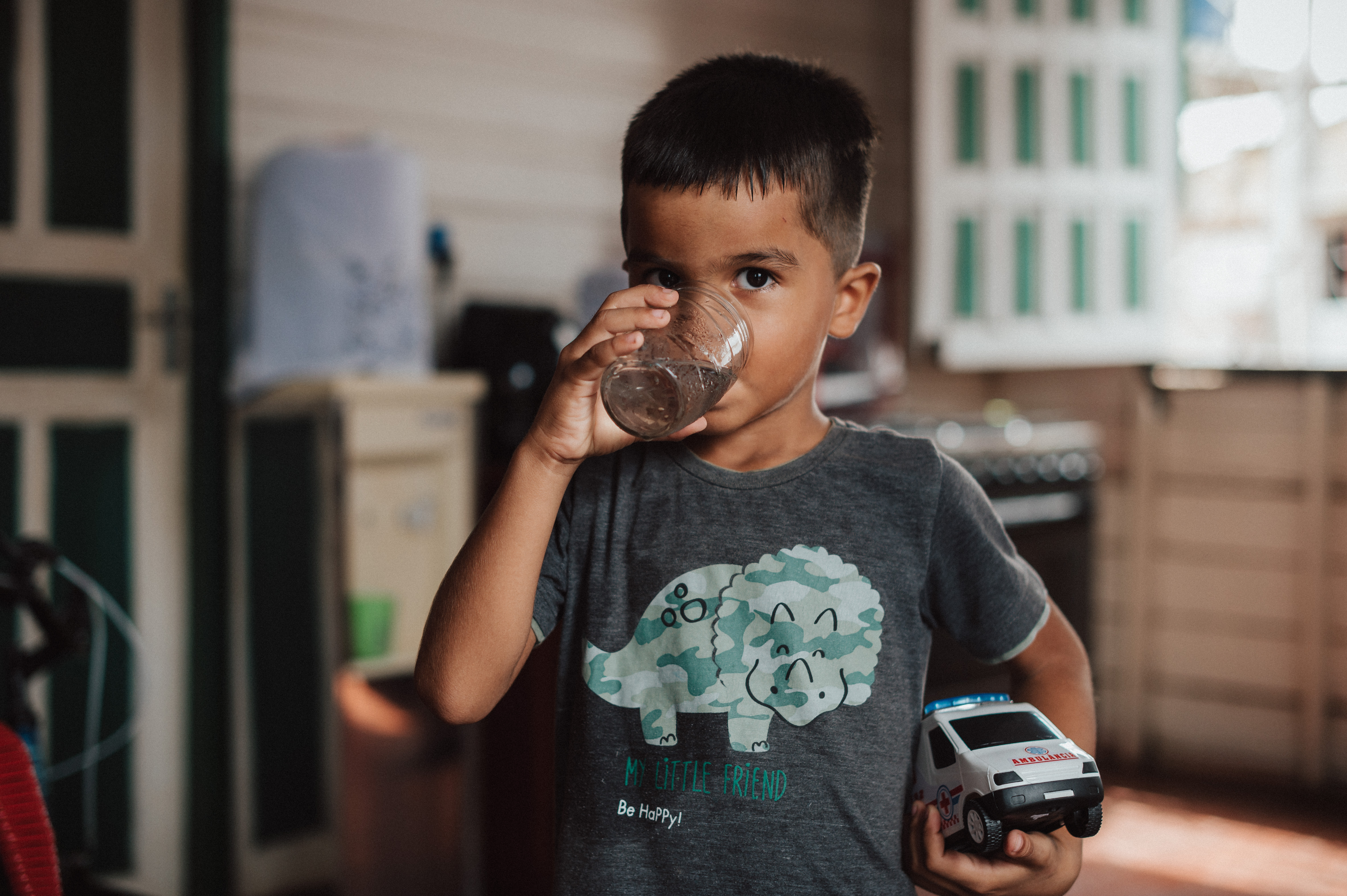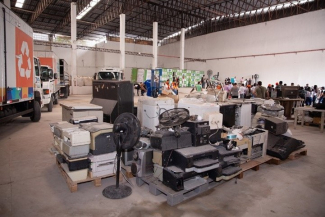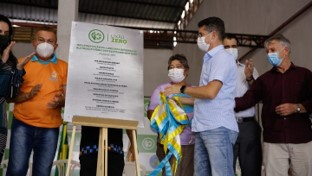
Description
The reverse logistics system aims to carry out a set of actions, procedures and means to enable the collection and return of solid waste to the business sector, for reuse, in its cycle or in other production cycles, or other environmentally appropriate final disposal. It is an instrument for the coordination and integration of reverse logistics systems to enhance the achievement of the results of the different systems in the country – whether they are already implemented or in process.
The Brazilian Reverse Logistics Program is an instrument for the coordination and integration of reverse logistics systems and aims to:
I - optimize the implementation and operationalization of physical and logistics infrastructure;
II - provide scale gains; and
III - enable synergy between systems.
The reverse logistics system aims to carry out a set of actions, procedures and means to enable the collection and return of solid waste to the business sector, for reuse, in its cycle or in other production cycles, or other environmentally appropriate final disposal. The materials oriented to the National Reverse Logistics Program are: pesticides, lamps, tires, lubricating oils, and packaging of lubricating oils, batteries, electronics, lead batteries.
In 2021, 11 reverse logistics centers for electronics were inaugurated. The reverse logistics system for electronics, instituted in 2020, registered advances
in 2021 with the installation of 3,152 adequate disposal points, benefiting 1,216 municipalities in its first year of implementation. Reverse logistics centers
installed in 11 capitals, covering all regions of Brazil.
Criteria 10/11
- ACCESSIBILITY
- ALIGNMENT WITH SDG 1,3,4,6 AND/OR 11
- RACE AND GENDER ISSUES
- ATTENTION TO CHILDREN AND ADOLESCENTS
- LOW COST
- SOCIAL DIFFUSION
- ADMINISTRATIVE EFFICIENCY
- ADHERENCE AND CONTINUITY AT LOCAL LEVEL
- WASH INITIATIVE
- CLIMATE RESILIENCE
- SUSTAINABILITY
The actions will be implemented and coordinated by the MMA, with the participation of business entities and other public entities representing the waste management sector.
It will be important to coordinate with state and municipal managers for the composition of Cooperation Agreements (or Terms) that formalize the hiring of companies that perform reverse logistics services, which are responsible for:
"In addition to the information on waste transportation, those responsible for reverse logistics systems will integrate and keep updated the information, among others requested by the Ministry of the Environment, on:
I - the location of voluntary delivery points;
II - points of consolidation; and
III - the results obtained, considering the established goals."
In relation to the operation and provision of services to implement the program, in addition to service providers, relationships and partnerships with:
•Associations and Cooperatives of Recyclable Waste Pickers
•ABRELPE - Brazilian Association of Urban Cleaning and Solid Waste Companies
•ABREE - Brazilian Association for Recycling Electronics and Household Appliances
Other institutions that can contribute to the discussion, monitoring and evaluation forums of this program are:
•ANAMMA - Brazilian Association of Municipal Environment Agencies
•CNM - Brazilian Confederation of Municipalities
•FNP - Brazilian Front of Mayors
• Brazilian Network of Public Consortia
•ABEMA - Brazilian Association of State Environmental Entities
•MNCR - Brazilian Movement of Waste Pickers
• Other Waste Pickers Organizations.
City halls
General population
Private waste generating companies that are part of the reverse logistics program.
Reverse logistics centers have already been installed in the following capital cities:
2021: Campo Grande, Florianópolis, Vitória, Manaus, Maceió; Federal District, Curitiba and Rio de Janeiro, Goiânia, Porto Alegre and Porto Velho.
2022: Aracaju, Cuiabá, Boa Vista, Macapá, Belém, Palmas, João Pessoa, São Luís, Rio Branco, Teresina, Belo Horizonte, São Paulo, Salvador and Natal.
The goal of the Ministry of the Environment is to reach 5 thousand collection points by 2025, of which 3,100 were already implemented in 2020, more than 275 thousand tons of batteries were collected and destined for recycling, which allowed the recycling of 144 thousand tons of lead.
2021 to 2025
Cooperation Agreements (or Terms) between the city halls and ABREE to formalize the hiring of companies performing reverse logistics services.
In addition, success of the actions depends on: the proper management of MSW by municipalities; manufacturers, importers, distributors and traders of products whose reverse logistics system is provided for by law or regulation, to develop the products, communication, collection and reinsertion of waste in the productive market through the reverse logistics system; consumers, who need to properly and in a segregated manner pack the solid waste generated and adequately make reusable and recyclable solid waste available for collection or return, ceasing their responsibility only with return to the appropriate places.
• Formalization of the Program through a Federal Decree;
• Inclusion of the Program in the Brazilian Solid Waste Plan (Planares)
• Communication Strategies implemented by the public entity executing the Program
• Communication Strategies implemented by associations of waste pickers involved in the Program
This program will be monitored by the SINIR+ (Brazilian Solid Waste Management Information System) platform. The data from the collections are managed by the municipalities that implemented the program. The data is returned to the MMA, manager of the monitoring system.
Federal Government Resource. MMA is transferred to the municipalities that:
• have a Municipal (or regional) Solid Waste Management Plan;
• are in compliance with the last statement of information with SINIR;
• comply with the mandatory requirements for access to Federal Government resources set forth in Laws and regulations.
Federal Decree 10.240/20 - Regulates the Brazilian Reverse Logistics Program

